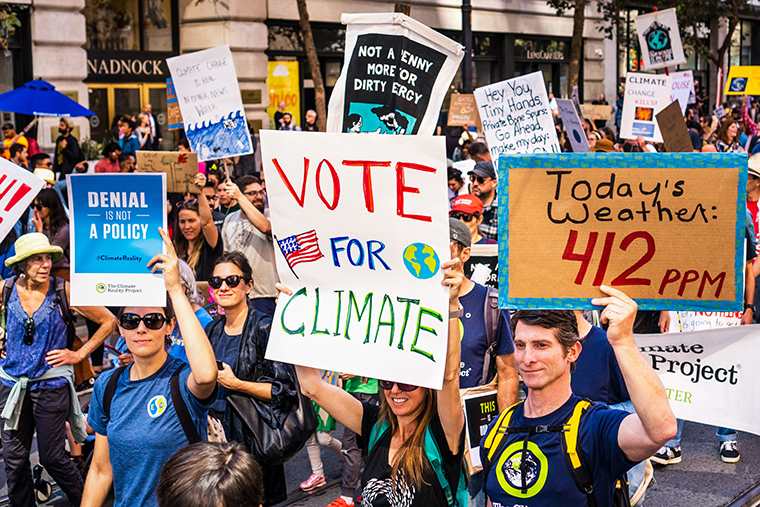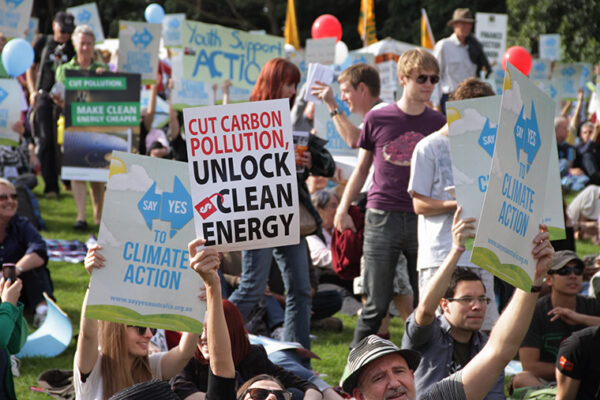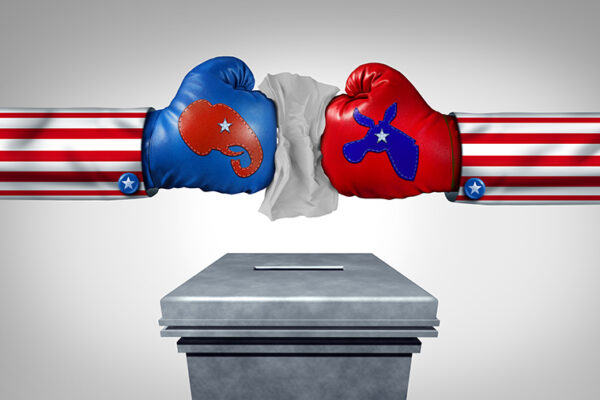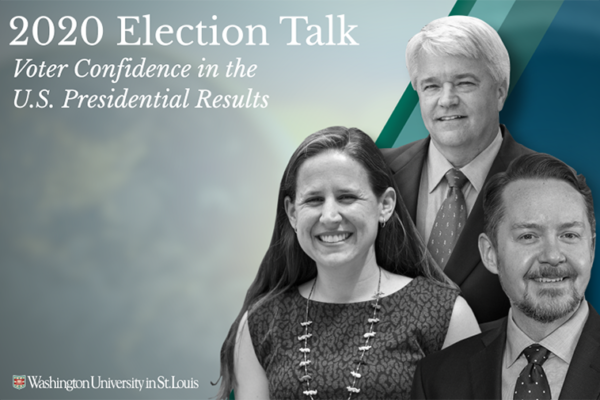One of the issues at the center of the 2020 election is climate change. A recent survey by the Weidenbaum Center at Washington University in St. Louis found that a majority of voters — 95% of Democrats and 54% of Republicans — recognize evidence for climate change. But partisans differ in how serious they view the issue, what they believe is causing global warming and their support for policies to address the problem.

The survey provides perspective on the challenges environmentalists face in building public support for stronger policies to address climate change — support that can then pressure candidates and elected officials to adopt favorable policy positions, according to Steven Smith, the Kate M. Gregg Distinguished Professor of Social Science in Arts & Sciences.
The results of the August 2020 American Social Survey mirror a similar survey conducted in November 2019 before the presidential primaries.

Smith and William Lowry, professor of political science and environmental studies in Arts & Sciences, found that President Donald Trump’s supporters demonstrate a far greater diversity of views than do supporters of Democratic candidate and former Vice President Joe Biden. More than 90% of Biden supporters rate climate change to be a crisis or a major problem and believe that human activity is to blame. Just less than half of Trump supporters consider climate change to be a crisis or major problem. Even among Trump supporters who consider climate change to be real, only half attribute it to human activity.
Among the 43% of Trump supporters who deny that there is solid evidence for climate change, a majority endorsed the statement “the advocates of global warming are deliberately misleading us for their own political reasons,” rather than the statement that “the scientific evidence is incomplete or misleading.”
“That adds up to about one-fifth of Trump supporters who are deniers and blame what they see as deliberately misleading environmentalists,” Smith said.
Climate change policies
Not surprisingly, Biden and Trump supporters differ in their support for a range of policy proposals:
 Of the alternatives included in the survey, raising taxes — either in a carbon tax or in a carbon dividend plan — was the least popular with survey responders. However, recent previous surveys have shown that carbon pricing is less unpopular when the question states the revenue will be used for renewable energy research and development, Smith said. Under these conditions, 70% of Democrats and even a small majority of Republicans (51%) then support carbon taxes.
Of the alternatives included in the survey, raising taxes — either in a carbon tax or in a carbon dividend plan — was the least popular with survey responders. However, recent previous surveys have shown that carbon pricing is less unpopular when the question states the revenue will be used for renewable energy research and development, Smith said. Under these conditions, 70% of Democrats and even a small majority of Republicans (51%) then support carbon taxes.- Stricter limits on vehicle fuel efficiency and greenhouse gas emissions are more popular than carbon taxes.
- A majority of Biden supporters favor all proposed policies, including carbon tax proposals.
- Trump supporters are evenly divided on fuel efficiency and emission standards, lean against a cap-and-trade system and strongly oppose tax-based approaches.
- Undecided respondents fall between Biden and Trump supporters in their level of support for each of the policies.
“It is noteworthy that tax-based approaches endorsed by many, if not most, economists are the least popular proposals among both Biden and Trump supporters. Biden and Trump supporters, remarkably, give stronger approval of direct regulation,” Smith said.
“For Democrats, it appears that there is near unanimity on the nature of the problem, but less agreement on policy alternatives,” Smith said. “Tax-based proposals, which are advocated by many economists and environmental policy experts, generate the least support.”
Biden, Smith notes, has proposed a climate change plan that dodges the issues of carbon taxes.
“Biden’s plan asserts that net-zero greenhouse emissions from the U.S. can be achieved by 2050 by shifting to emissions-free power sources, building and vehicle fuel efficiency, tax subsidies for renewable deployment and other new investments, but without a system-wide carbon tax or the adoption of a carbon dividend plan. In doing so, he dodged a debate over the least popular climate change proposals,” Smith said.
“On balance, the American public recognizes the evidence for global warming, agrees that humans have caused much of it and favors a range of policies to address it,” Smith said. “Even among Democrats, dissension on taxed-based approaches to limiting carbon emissions may prove to be a serious challenge to enacting legislation in the Congress, even if Democrats win the White House and the Senate.”



